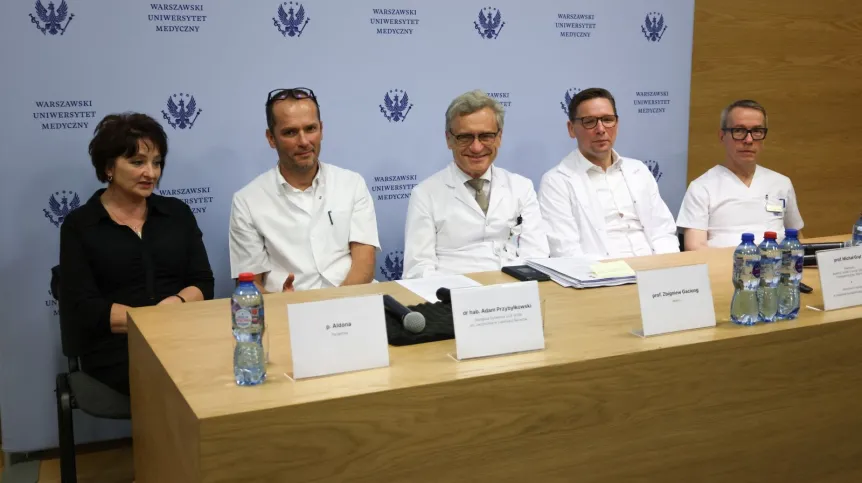
Polish surgeons have performed the world's first supportive liver transplantation in a patient whose organ was damaged in a traffic accident.
The operation was carried out in May by specialists from the Department of General, Transplantation and Liver Surgery, University Clinical Centre of the Medical University of Warsaw, led by Professor Michał Grąt,
'In short, the innovation was that the patient had a liver transplant and then was discharged without a transplanted liver, in excellent condition. This does not happen under standard conditions', says Professor Grąt, head of the Department of General, Transplantation and Liver Surgery, University Clinical Centre of the Medical University of Warsaw and national consultant in the field of clinical transplantology.
According to Grat, most of the patient's liver was damaged and had to be removed, and the remaining part of the organ was too small for her to survive.
'Until now, patients had to undergo a whole liver transplant and had to live with the transplanted liver for the rest of their lives', says Professor Grąt. In this case, in order to give the remaining part of the patient's organ time to regenerate, the doctors decided to perform the so-called supportive transplant procedure.
The patient had only one lobe of the deceased donor's liver transplanted and 11 days after the transplant, the preserved part of the organ - supported by the transplanted part - had grown threefold and it was possible to remove the donor's organ part.
Now the patient 'does not have to take immunosuppressive drugs (including anti-rejection drugs - PAP), because she does not have a liver transplant’, says Great.
He adds that the patient has also avoided many other complications associated with a classic transplant.
'We have created a completely new surgical strategy for patients with the most severe liver injuries.
'On the other hand, it creates an opportunity to introduce supportive liver transplants in Poland also for patients with acute liver failure and cancer patients, and pushes the limits of our possibilities even further', he says.
According to the professor, such transplants will also help solve the problem of organ shortage. 'One divided liver gives two patients a chance to survive', he says.
The patient who underwent the procedure told journalists that although she was thoroughly informed about the operation, she was not fully aware of its breakthrough nature. She emphasised that she was surprised to be the first patient in the world to undergo such a procedure.
She added that the decision to undergo surgery was associated with great anxiety, but she knew she had no other choice. 'I feel fine, like a normal person - from before May 29', she said and added that she had no dietary restrictions. (PAP)
Ewa Fiutka
ef/ joz/ amac/ kap/
tr.RL













